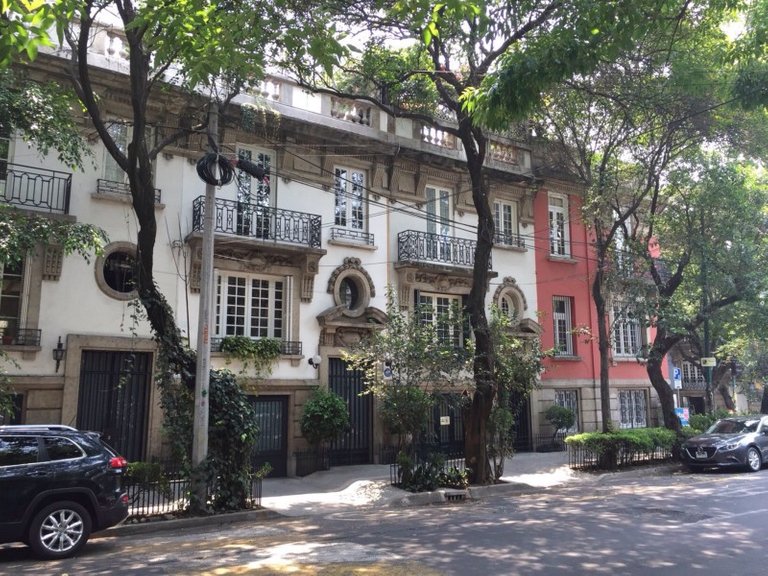
Originally published on Medium and The Huffington Post
It appears that every couple of months, some pseudo-Hipster publication will suddenly discover my hometown, and write a piece (usually in English) about how it’s “the hottest place” for the bohemian trendy expat set. Usually when this happens, many of my fellow liberal, college-educated chilango millennials will fawn over the article, getting the validation they so desperately crave. Suddenly, all the anxieties over endless daily commutes seem to disappear with a foreigner telling them they live in “the coolest city of current year”. But personally, I find that this sort of nonsense makes me cringe.
I grew up in this city, I’m proud to call this place home, and I love it dearly. There are many cool and wonderful things about Mexico City. But let’s not kid ourselves. This place is no bohemian utopia, and certainly not the new Berlin.Mexico City can be incredible, but it can also be a deeply complicated place.Firstly, these articles make it seem as though the entire city was made up of two to three neighborhoods: Condesa, Roma, and Polanco. In reality, Mexico City happens to be huge. Secondly, for those who do not live in central, well-connected areas, commutes can often take between one and two hours. Public transportation is decent and affordable, but unfortunately, it also lacks the capacity and infrastructure necessary for a huge city inhabited by over twenty million people. Overcrowding and transport shortages become all too common for the average public transport user trying to get to work every day.
Thirdly, there’s the cost of living. Mexico City is currently living through a housing bubble, where the cost of renting or buying a place to live has risen dramatically. And while, obviously, properties are hardly London or New York-level expensive, they are certainly not affordable in a city where even the average university graduate makes slightly less than what is considered minimum wage in Europe or the rest of North America. Not to mention the fact that the “cool” neighborhoods exalted by these articles are among the most expensive in the city. Now, this situation might be all well and good if you’re a foreign journalist earning a first-world salary from working remotely, but for the rest of us, it’s certainly not as easy.
And that’s just the tip of the iceberg of how precarious the economic situation here is. The vast majority of Mexico City residents are poor and marginalised.Many lack access to basic necessities such as clean water, and live in makeshift homes which they often built themselves. Mexico City also suffers from deep social inequalities. Trendy neighborhoods and affluent suburbs often stand surrounded by slums and vast belts of abject poverty, yet areas remain segregated from each other in every way imaginable. Even in the affluent areas, one can often see signs of how deep inequality goes in this city. In the trendy bars and cafés of Condesa, Roma, or Polanco, it is not an uncommon sight to see homeless children begging for money amidst the hipsters sipping their expensive cold brews.
To compare this reality to a city like Berlin, where most people have pensions, a good standard of living, quality state-run healthcare, and decent wages is the height of egregiousness. It makes you wonder exactly how tone-deaf the writers of pieces like this can be. Have they ever dared venture outside the Roma-Condesa bubble? How much do they even know about Mexico City?Why have so many of these articles been popping up in recent years? Is it just cluelessness that drives them, or is it part of some local government branding strategy akin to the “Mexican Moment” debacle of a few years back?
At best, these articles display a certain naïveté. At worst, they engage in outright erasure, where the parts of the city not inhabited by affluent, trendy (and yes, mostly White) foreigners are simply ignored. It’s a kind of metaphorical displacement akin to the very real displacement that occurs when this crowd moves into an area, gradually making it unaffordable for ordinary people. Intentionally or not, the idea of Mexico City as this “new Berlin” only helps to exacerbate the dynamics of exclusion that plague our city every single day.
✅ @tamaravelasquez, I gave you an upvote on your first post! Please give me a follow and I will give you a follow in return!
Please also take a moment to read this post regarding bad behavior on Steemit.
Hi! I am a robot. I just upvoted you! I found similar content that readers might be interested in:
https://www.huffingtonpost.com/entry/no-mexico-city-is-not-the-new-berlin-a-response_us_58fa5417e4b0f02c3870e9a8